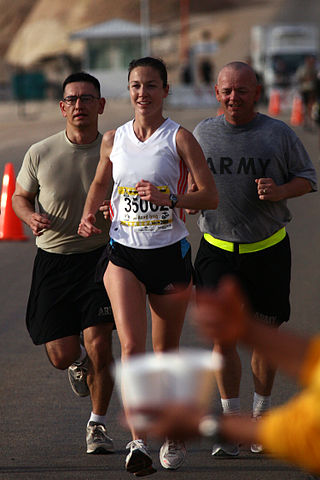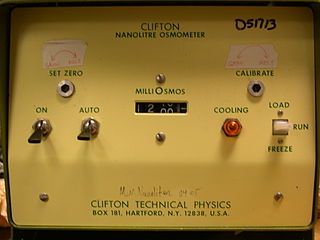 Sport
drinks through extensive marketing, have become very popular, over-used, mis-understood and mis-represented.
Sport
drinks through extensive marketing, have become very popular, over-used, mis-understood and mis-represented.
There are also
many food items or drinks promoted as substitutes for sport drinks and there is flurry of "home-made" sport drinks options promoted
by those opposed to the commercial versions.
This review will clarify and explain the role, the rationale and the research behind
sport drinks.
First commercial sport drink
The first commercial sport drink was Lucozade, developed by GlaxoSmithKline Pharmaceuticals in 1953 in England.
The first
North American product was based on research in 1965 by a group of researchers at the University of Florida headed by Dr. Robert
Cade and tested by the Florida Gators Football team - hence the name "Gatorade".
Sports Drink Research
Sport Drinks have become the most researched sport nutrition product in the marketplace. Some of the most thorough research
on this topic was reported by Dr. Ethan Nadel of Yale University in American Scientist in 1988 when he was lead physiologist
for the Daedalus Project (man powered flight from the Greek Island of Crete to the island of Santorini across the South Aegean
Sea).
This work was followed by Dr. John Greenleaf at the NASA Ames Research Centre in California and reported in several Technical
Bulletins from NASA in 1992.
Purpose and effectiveness
A sport drink is specifically designed to provide water, calories and electrolytes during exercise. The criteria for a good
sport drink involves optimum osmolality to ensure rapid absorption, significant energy (100 calories / cup) and a good balance
of electrolytes to maintain hydration and many metabolic processes.
Such criteria are particularly important for endurance sport
activities that last for 50 minutes or more. The longer the event and the hotter the environment, the more significant the effect.
Re-hydration products used in hospital environments, recovering from non-competitive exercise or relaxing on the patio do
not need to meet the criteria above.
Sports Drink Formulation
Osmolality
 The
effectiveness of pre-mixed commercial sport drinks, powdered ingredients that must be mixed in water, the convenience packed
Gel products and "home-made sport drinks" is dependent on the osmolality of the product.
The
effectiveness of pre-mixed commercial sport drinks, powdered ingredients that must be mixed in water, the convenience packed
Gel products and "home-made sport drinks" is dependent on the osmolality of the product.
Here is where the most of the mistakes
are made. Imbalances will inhibit gastric emptying, intestinal fluid absorption, blood flow, and induce side effects such as
fever, and cramping.
Osmosis, to review your high school science, is the movement of a solvent (water) through a semi-permeable membrane (gut
wall and blood vessel wall) from a less concentrated solution to a more concentrated one.
If only water existed on both sides
of the membrane there would be no net flow and the two solutions would be considered isotonic. You cannot calculate osmolality
from a formula, it has to be measured.
Similarly, if the concentration of particles (number of particles, not the size) in the gastric fluids was the same as it
is in the blood, there would be no net flow of water in either direction.
However if the gastric fluids are primarily water
(meaning very few particles and a very low osmolality) there would be a net flow of water into the blood in an attempt to equalize
the osmolality.
Hypotonic vs. Hypertonic
This low osmolality of the gastric fluids would be defined as hypotonic (less concentrated than the blood). On the other
hand, if the gastric fluid were more concentrated (meaning more particles and a high osmolality) than the blood, there would
be a net flow of water from the blood to the gut and this would be known as a hypertonic solution.
Osmolality of blood
The osmolality of blood hovers around 280-290 mmoles/kg (that's how they measure osmolality) so the best sport drinks have
osmolality measures near or below these values.
Maugghan, reported in the Canadian Journal of Applied Physiology in 1999, after
a thorough review of the science that the optimal osmolality for sports drink to be defined as in "the slightly hypotonic range
between 200 and 260 mmoles/kg".
Carbohydrates
The carbohydrate content of the drink seems to exercise the greatest influence on osmolality. Electrolyte content also contribute and that is why you see most Physiologists recommending 6 - 8% carbohydrate solutions. (see the most popular grocery store sport
drinks). This usually results in a solution of 12 to 16 grams of carbohydrate (50 to 60 Calories).
However there are a few drinks that are 10 -12% carbohydrate and containing up to 25 grams of carbohydrate (100 Calories).
This can make a big difference in the glycogen sparing action during an Ironman or Ultra-marathon race.
These are the products
that use maltodextrin, which is a chain of 3-17 loosely connected glucose molecules that in terms of osmotic effect is
the same as one molecule of sucrose which is one molecule of glucose and one molecule of fructose.
Dehydration
Even mild dehydration - 1% of body weight - which would represent approximately .75 to 1 litre of water (1% of 75 Kg = 750
ml.) can create a reduction in muscle performance and start to show dehydration symptoms.
If the dehydration is 2 - 3 %, serious
performance inhibition occurs. Dr. David Costill (of Ball State University) demonstrated that at these low levels of dehydration
1 - 3% even the time for 1500 meters was inhibited. The time for a competitive 10 K was reduced by 2.5 minutes which is serious
in a 30 min 10 K.
Top 10 Things to Look for in a Sports Drink
- Sugar Sources: So how can there be such a variation in carbohydrate content if osmolality is to be maintained? The answer
is - not all sugars are created equal. The best sugars are maltodextrin, for reasons stated above.
- Electrolytes: most drinks have 2 electrolytes, sodium and potassium but there are other significant electrolytes like
Calcium, Magnesium, phosphorous and Chloride that all play a role in optimum muscular performance. The ratio of sodium to
potassium should be approximately 2:1.
- There is no place for protein and fat in a sport drink, they would require digestion and negatively affect the osmolality.
- Commercial gels require the athlete to "play biochemist" while running in order to be sure there is enough water to
effect a hypotonic reaction for absorption.
- Energy Drinks are not sport drinks!! They usually contain caffeine, other stimulants, few electrolytes and inadequate
water hence are hypertonic.
- Recovery drinks are not sport drinks. Recovery drinks should contain a carbohydrate to protein ratio of 3 or 4:1.
- Coconut water, although a healthy, refreshing drink and does have some supportive research in hospital electrolyte recovery
situations, it does not meet the criteria for a sport drink.
The electrolyte and carbohydrate content varies widely, depending
on the age of the young coconut. The osmolality is hypertonic and the carbohydrate / energy content is too low.
Although
it is high in potassium, it is far too low in sodium and other electrolytes in small amounts.
- Home made sports drinks or alternative food items have been advocated by several writers who suggest you can do better
than commercial products.
They seem to think they can compete with some of the best biochemists and exercise physiologists
in the country.
Dr. Sam Mettler of Zurich published in the Swiss Journal of Physiology in 2006 evidence that most home made
drinks, although hypotonic but poor in electrolytes and low in carbohydrates.
Watermelon and bananas are two of the home
version suggestions I recently read. Besides both being somewhat cumbersome while running, both are low in sodium, carbohydrates
and several electrolytes.
- Coca Cola (“de-fizzed”) has been referred to by some to be the first sport drink, but the osmolality is
very hypertonic, (493 mOsm/kg), the sugar is high fructose corn syrup and the electrolytes are barely evident.
- Fruit juices are all very hypertonic and inconsistent with electrolytes.
10 Popular Sports Drinks
The Table shows the characteristics of 16 home made and commercial sport drinks and they are in rank order
(my preferences) based on osmolality, Carbohydrate / energy content and electrolyte profile. Several alternative items discussed
are also shown.
Hover mouse over table to show horizontal scrollbar at bottom of table or swipe left on a touch screen.
* Microsoft Edge browser 15 has bug where it won't scroll table sideways with scrollbars. Workaround: 1. Use mouse scroll wheel (l/r not up/down) 2. Use Chrome or FF. 3. Use our image below.